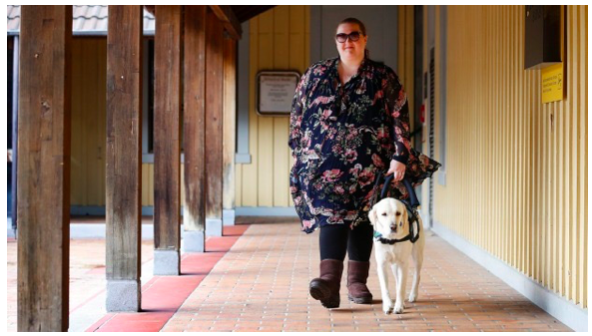
Ailsa Lipscombe, 2015-2020, New Zealand, with service dog Connie.
In honor of the 25th Anniversary of the Americans with Disabilities Act, today’s post spotlights the story of current Fulbright Foreign Student from New Zealand, Ailsa Lipscombe, who shares how she has come to re-define her disability and pursue a Fulbright grant in the United States.
Changing attitudes towards disability both here in New Zealand and abroad have been invaluable in me gaining the confidence to continue my studies overseas as a young adult living with chronic pain and vision loss. After falling over at high school and developing a rare nerve disorder – Complex Regional Pain Syndrome (CRPS) – that, among other things, causes constant pain throughout the body, I never dreamed that ten years later I would be preparing to move to the United States of America as part of the Fulbright Foreign Student Program; yet in September, I will move to Chicago where I will be studying towards my Ph.D. in Music at the University of Chicago.
Having completed my Master of Music at the New Zealand School of Music, I am excited to study in a new environment and alongside a new cohort of students, who I know will inspire and challenge me every day. My key research interests are in the way popular music intersects with narrativity and narratology, and in the multiplicity of ways listeners approach, interpret, understand, and share musical experiences. My work here in New Zealand has begun to explore these questions and I am ever grateful to the Fulbright Foreign Student Program for giving me the opportunity to unpack this research in a new academic and cultural context. As a musician and music scholar, I am thrilled to have the chance to study at an institution that values performance and/as research and I can’t wait to immerse myself in Chicago’s dynamic music scene both from inside and outside the classroom.
